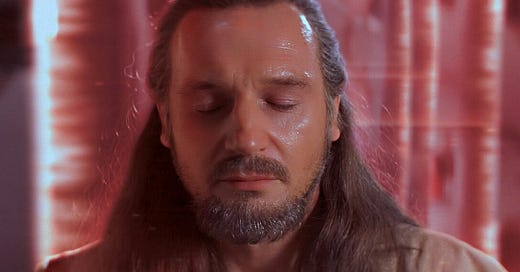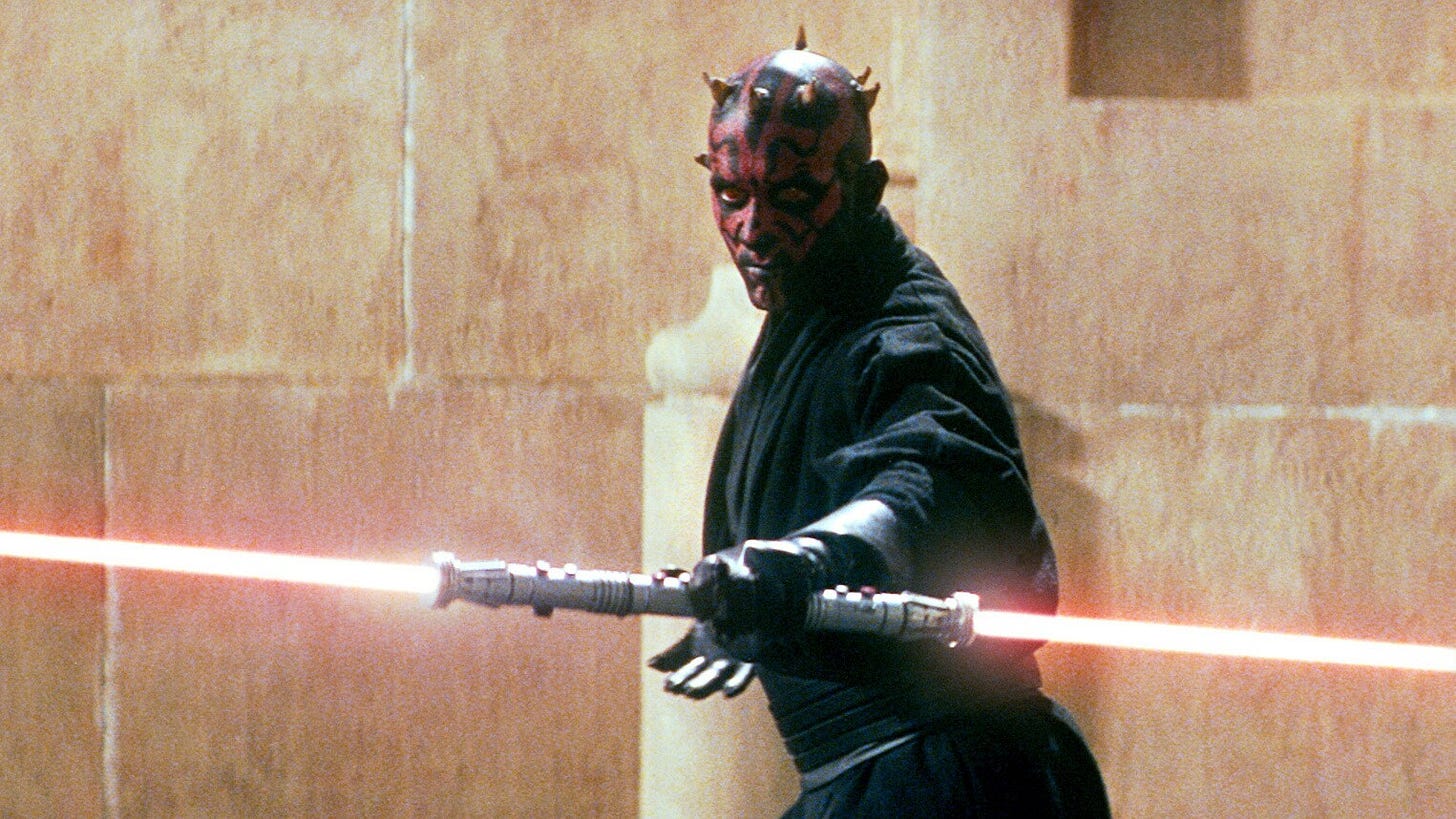Above is a screenshot of the headline of an article in the Hollywood Reporter, covering a recent British Film Institute event where the audience saw the uncorrected, original 1977 print of Star Wars, pre-special editions and Blu-Ray editions and Maclunkeys.
I’m not going to link to the article because that would be rewarding this headline, but I thought it was such a remarkably obvious example of the way our online discourse has been hijacked, and some of the sins of our unfortunate media environment, that I kind of just had to talk about it, quickly. I’m also not going to blame the writer of the article, James Hibberd, because headlines are rarely, if ever, written by the reporter, but by some Search Engine Optimization (SEO) expert.
If you actually read the article, and not the headline, there are two things that one can take away.
First, this article is quoting an entirely different article in The Telegraph as the source of its headline. So, the original reporting of The Hollywood Reporter is really just piggybacking on The Telegraph and other writers to siphon some of their precious clicks and eyeballs.
Second, the actual responses to seeing the original 1977 print are far more nuanced, even beautiful. The same writer who said it cheekily looks “terrible” was also reminiscing about the distance traveled between his memory and the original film itself; and how there have been more quality-of-life updates that the famous ones we all focus on. He called it “joyously craggy, grubby, stolidly carpentered spectacle.” Hibberd also quotes a Vlogger who called seeing the print “incredibly special.” Both of them note that while watching the movie, the audience cheered what Han shot first.
The real thoughts of these two (just two!) individuals, quoted by The Hollywood Reporter, are that the experience was revelatory and nostalgic and surprising. I imagine lots of people in that room felt many things, including grateful to be reacquainted with a lost memory. And they both also acknowledge that George Lucas’s tweaks, to keep the film relevant all these years later, were not so egregious as they imagined.
Why am I pointing this out? Because there’s a bias towards the negative in our media consumption. Because what this headline was designed to do is fill up a comments section, light up a Facebook post, or get responses on X. It takes the least nuanced, most misanthropic version of what’s been written, and broadcasts it to gin up engagement. It’s as if it’s been put through a Dark Side filter. And this, friends, hammers out the precious reading comprehension that trains us all to think with complexity and emotion about the cultural world around us.
I’m not the first person to point out clickbait, I realize, but I think it’s worth noting in an era of AI content farms and people gaming algorithms for ad revenue, we owe it to ourselves to read articles, compare what they claim to say with what they actually say, and question why they’re being put in front of us.
I noted this, I remember, when the world was treated to a host of “Mark Hamill hated The Last Jedi” posts back in 2017, even though Hamill’s actual interviews were about his initial shock at the script, his disagreements with Rian Johnson, his insecurity, and then allowing himself to put himself in the writer’s hands. The result of all this creative friction was interesting, but it also resulted in Mark Hamill’s most rich work as Luke Skywalker on screen. He was talking about the creative process, not trying to undermine Rian Johnson. But, context matters, and the writers of headlines like the one above are counting on us to respond emotionally to the first thing we see, not dig deeper.
I recently read a piece with this headline:
This is from ComicBook.com, and to read the headline, you would come away with the impression that Marvel Studios itself has deemed Pedro Pascal the new lead character in the MCU.
Several problems instantly emerge, because the word Offical doesn’t really apply in any real way here. (Tony Stark is not a job title?) But, the article itself is quoting another article in Empire (see a pattern here), where Director Matt Shakman praises Pedro Pascal for his performance as Reed Richards, and the writer then fills in the blanks with his opinions and conjecture. It was, really, not much more than “It sounds like this might happen!” with a headline. Nothing official to be found. (But I clicked on it, didn’t I?)
This isn’t, of course, just a part of our discourse around culture. Politicians hope that we will get the impression of the first headline and then lose track of the corrections, subsequent information, and revisions over time. They want the headline to read “obliterated” because they hope that in a week, when the answer is actually ‘it’s hard to assess from the Intelligence, it could be that this didn’t result in a significant reduction in capacity’ the first impression has stuck, and the truth gets lost in the details.
It’s hard to think clearly in a media ecosystem that is designed to inspire our tribalism, disagreement, and steal our attention. It makes looking forward to something (like Superman, which I’m excited to see!) it’s a slog through manufactured debates; or reduces seeing a long lost print, that Star Wars fans have been clamoring for, into the word ‘terrible.’
So, as Qui-Gon Jinn says, your focus determines your reality. Take a deep breath when you read a headline, read the article itself, and then start to keep track of who you trust. So much online is not here to inform you or nourish you, but just make you look, and at worst, inflame you. Don’t let them pre-chew your opinions and spit them into your mouth like you’re a baby bird.
Or, to put it in Ahch-To Baby terms:
If you see a headline that looks like this…
Try a little of this…








I'm so jealous of everyone who got to see the original cut!
I never thought I'd see the day that Ahch-To Baby stoops to using such click-baity headlines...